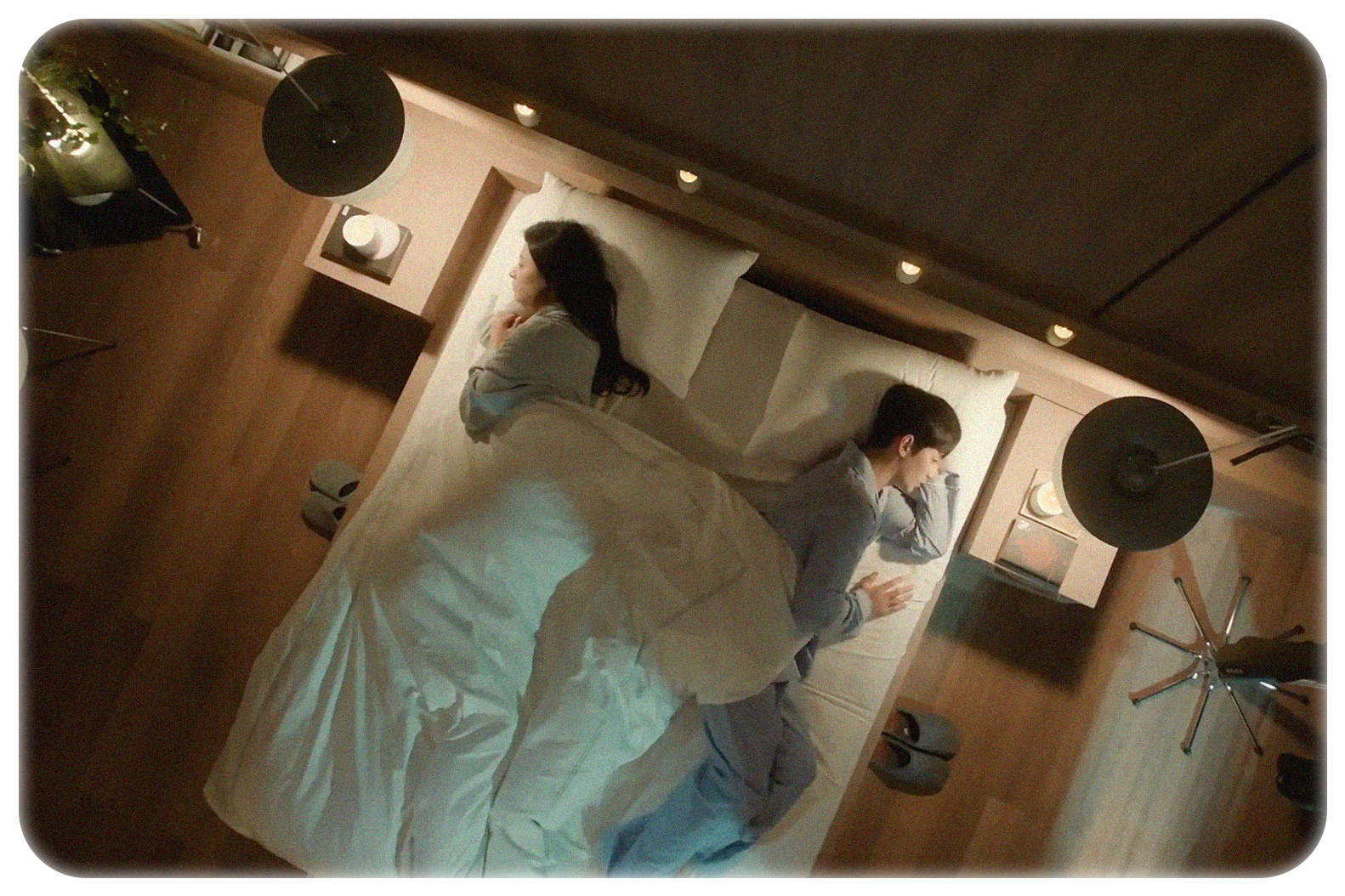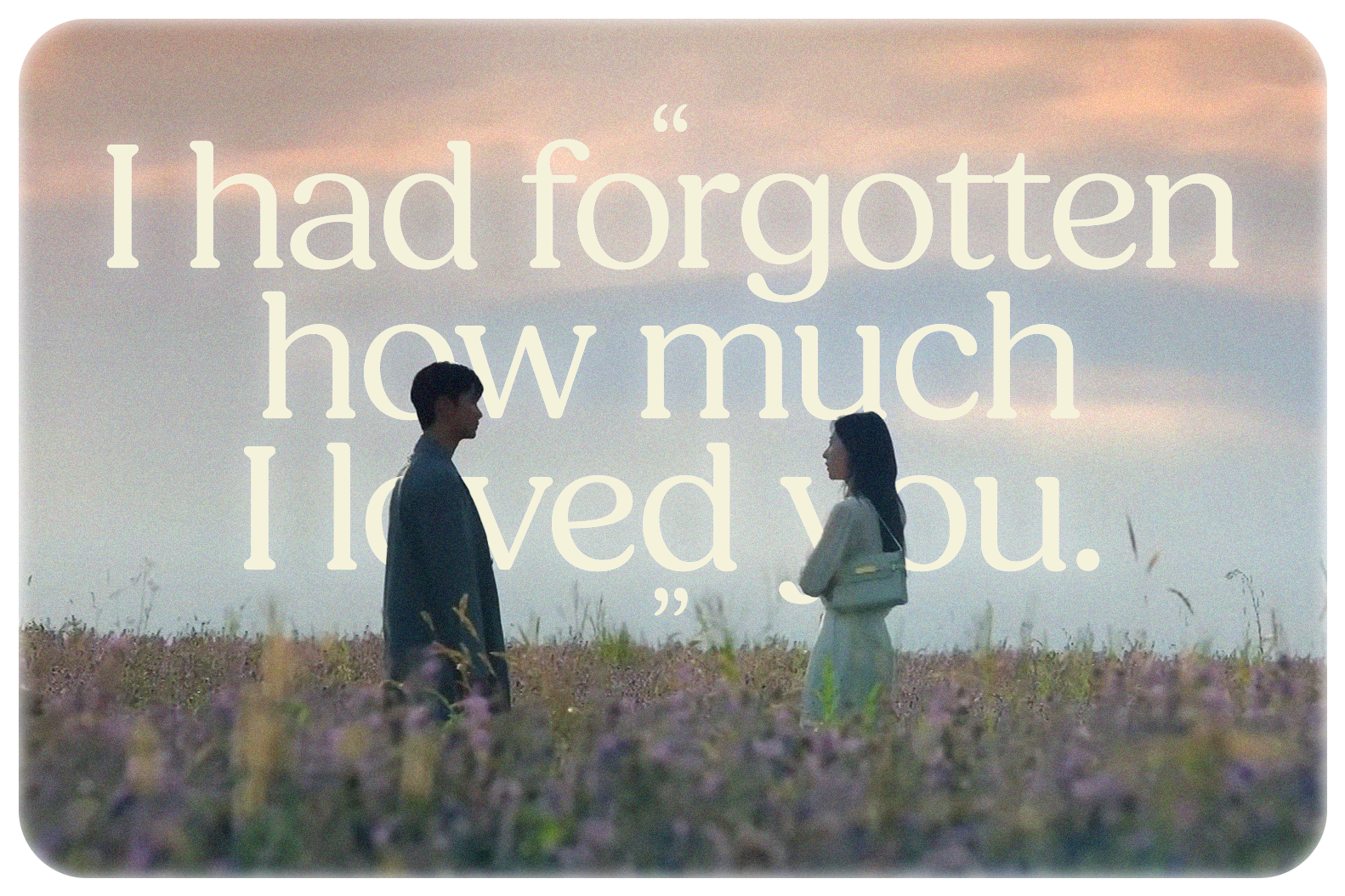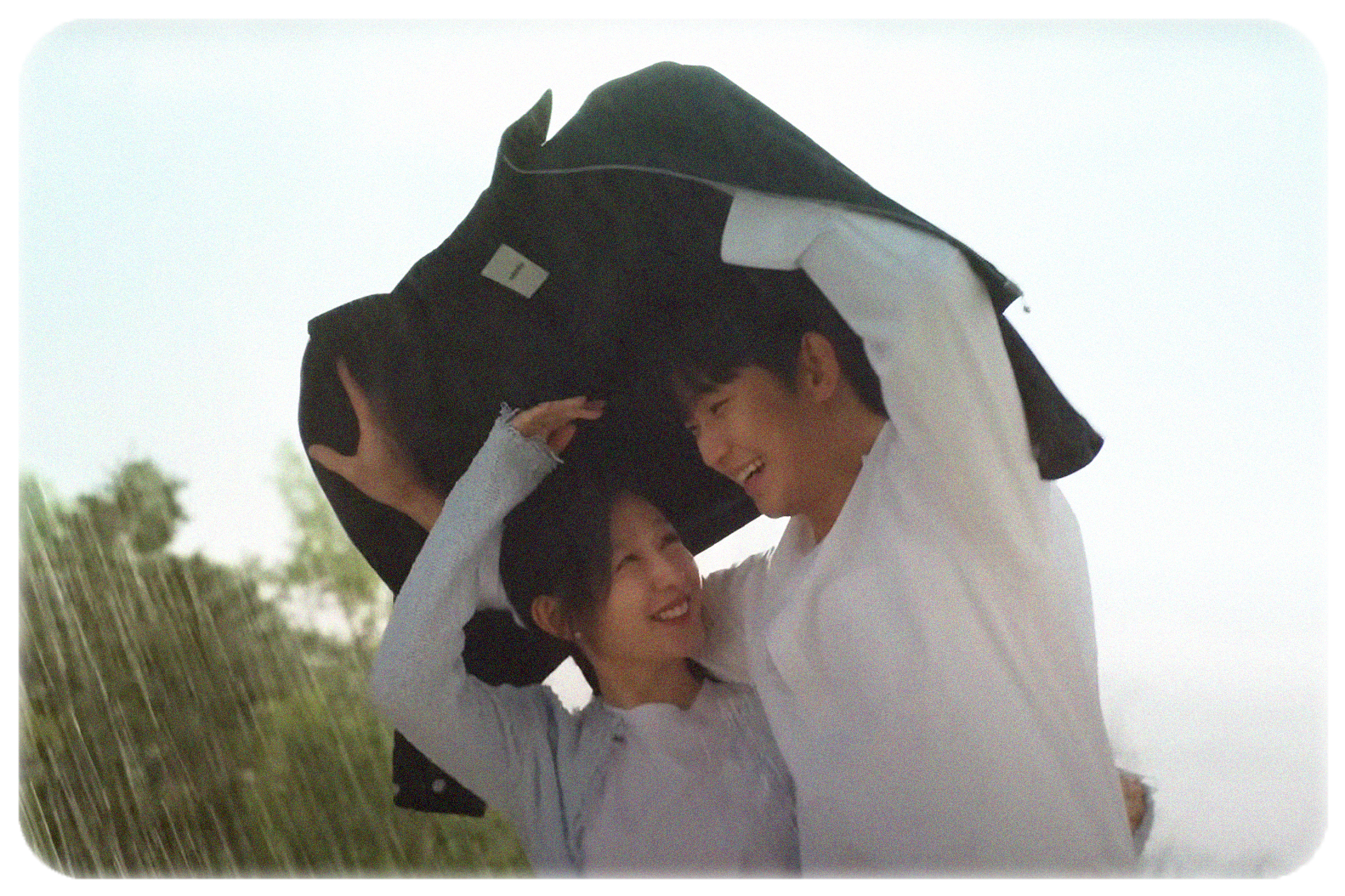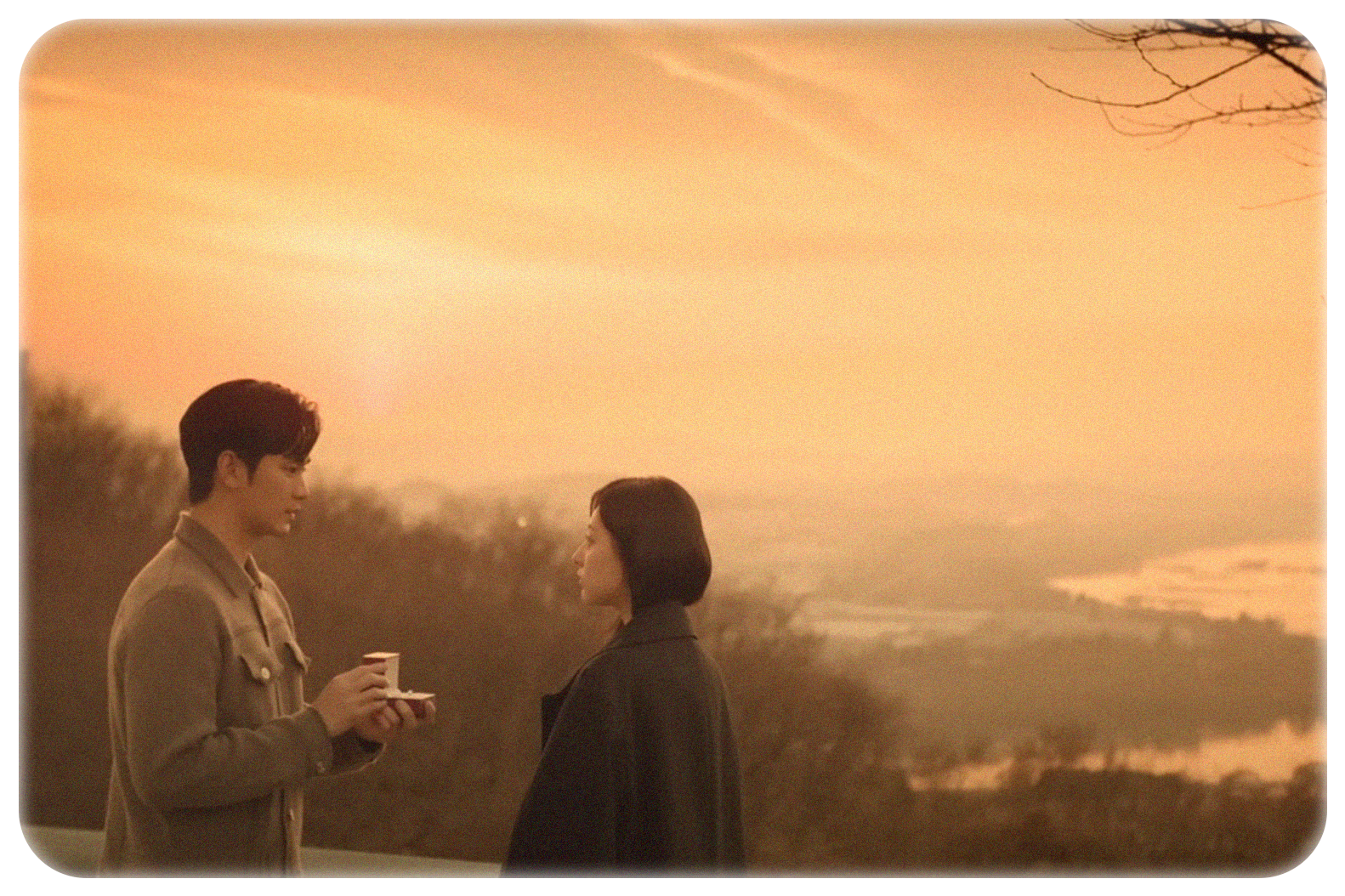SPOILER ALERT: This article contains spoilers.
With ratings peaking at 24.850% in its final episode, Queen of Tears became the highest rated TVN drama of all time, dethroning Crash Landing on You which held that title for four consecutive years.
Truthfully, I was rather skeptical of the hype at first, since I’m generally not a fan of slow-burn realistic melodramas and prefer fast-paced plot-driven dramas, especially those of the fantasy genre.
But I was surprised to find myself falling in love with this show, since Queen of Tears is far from a fantasy or fairy tale.
Rather than painting a rose-tinted picture of a romantic marriage, Queen of Tears unveils the harsh reality of marriage in all its ugly rawness.

The drama stars attorney Baek Hyunwoo (Kim Soohyun), and his wife Hong Haein (Kim Jiwon), heiress chaebol CEO of the Queens Group department store.
The story follows their journey as they navigate their marital crisis. With their marriage on the rocks, Hyunwoo is on the brink of divorcing Haein, but everything changes when she is diagnosed with brain cancer.
Queen of Tears featured a swoon-worthy cast with amazing acting skills and chemistry, but I really loved the drama as I feel it taught several poignant lessons about marriage, and in some ways offered a lovely reflection of what a biblical marriage should be.
And so, here are my top three takeaways from this drama regarding marriage.
1. “Wars happen due to poor communication”
Preach it, Papa Baek!
Contrary to the love triangle trope, the broken marriage doesn’t stem from the interference of a third party; Yoon Eunsang – Haein’s delulu and still-obsessed ex – wasn’t even a factor in the dissolution of the couple’s relationship.
Instead, the breakdown of Hyunwoo and Haein’s marriage can mainly be attributed to poor communication, leading to the misinterpretation of each other’s intentions and misunderstandings.
“We probably fell apart due to trivial matters,” says Haein. “We said things we didn’t mean and protected our egos. And that caused stupid misunderstandings.”

While this wasn’t exactly trivial, a major misunderstanding arising from the couple’s miscarriage was what really sparked their marital crisis.
Hyunwoo was upset that Haein had cleared out their baby’s nursery without his consent, which he perceived as her being callous and cold hearted. Haein was too proud to admit her grief and accused Hyunwoo of blaming her for the miscarriage.
Hyunwoo did not realise Haein was quietly grieving the loss while looking at the sonogram and crying. And Haein in her pride could not see how devastated Hyunwoo was as well, as he moved into the empty nursery to mourn their child.
Left unaddressed, this misunderstanding eventually led the couple to drift apart. Even though they still lived in the same house, they were essentially living two separate lives.
Then there was the scene in which Haein asked Hyunwoo to go to the hospital with her.
From Hyunwoo’s perspective, he was at his breaking point and already wanted to divorce Haein. Hence, he saw her request as her being demanding and giving him orders without considering his feelings, which is why he flatly refused.
Later, the scene was replayed, this time from Haein’s perspective. From her point of view, she felt that she had already spoken in a gentler tone than usual, and her wavering voice revealed the vulnerability she was carrying to her husband, which he failed to see.
Hence, she perceived his refusal as indifference to her subtle cry for help (great acting with the subtle yet profound delivery of emotions, Kim Jiwon!).
I thought the director’s call to shoot the same scene from both perspectives was brilliant.
The two points of view provide insight into how people can perceive the same incident differently, resulting in unintentional misinterpretation of the other party’s true intentions.
Queen of Tears underscores the dangers of poor communication and a lack of communication in marriage.
You can’t expect the other party to read your mind, because even if they do, they would probably read it wrongly. And the same goes for all other relationships.
The best and most straightforward solution is to just be honest and upfront about your feelings to prevent misunderstandings.
2. Love and cherish, in sickness and in health
“It’s strange, isn’t it? We get married because we’re in love. So why does that love disappear?”
I felt that Queen of Tears did an excellent job portraying what love truly is.
Love is the foundation of any relationship. More than affection or a fuzzy feeling, love is a continuous choice to be there for someone throughout the good and bad times.
In a stereotypical romance K-drama, two people fall in love, overcoming obstacles to eventually marry and live happily together ever after.
In Queen of Tears, however, the wedding is not the be-all and end-all of romance but merely the beginning of a whole new set of challenges that arise from marital life like different living styles and difficult in-laws.
Hyunwoo had made the mistake of letting these challenges overshadow the love he had for Haein. The fuzzy feelings of love had faded away, leaving him numb and indifferent to his wife.
Queen of Tears gives viewers a reality check. Even when spouses are committed in marriage, feelings can fade.
Marriage is not a bed of roses, and challenges will arise. The problem is not so much to prevent these inevitable challenges from arising, but to not let them cause the love spouses have for each other to fizzle out.

The Bible gives pretty sound advice to overcome this. 1 Corinthians 13:7 tells us: “Love bears all things, believes all things, hopes all things, endures all things.”
Love requires perseverance. In marriage, couples must make continuous efforts to stand by each other even on days when it is most difficult to.
“Above all, keep loving one another earnestly, since love covers a multitude of sins,” reads 1 Peter 4:8. Grievances and offences will build up, but love gives the strength to look past these things.
Despite feeling so suffocated by Haein’s family, Hyunwoo put up with the mistreatment because he wanted to be by Haein’s side. And that, dear Hyunwoo, is true love – even if you didn’t realise it!
Just as Christ loves His bride, the Church, in her spiritual sickness and brokenness, spouses should continue to love each other in sickness or health.
Hyunwoo’s initial reaction when he learnt about Haein’s sickness was terrible – the man should really take a leaf out of the Bible!
3. Till death do us part
“A change of mind is not a valid reason to get a refund. That’s a given.” – Hong Haein
As someone who recently had to write about divorce from a biblical perspective for a Bible College term paper, I thought Haein’s shopping metaphor was a very apt expression regarding the invalidity of divorce due to a mere change of heart.
Matthew 19:8 reads: “He said to them, “Because of the hardness of your heart Moses allowed you to divorce your wives, but from the beginning it was not so.”
While I’m not about to dive into a theological debate, something we should note as Christians is that divorce was never God’s plan from the start.
Marriage was ordained as a covenant between a man and a woman, to be honoured until the death of one spouse, which is why the marital vows go “till death do us part”.
“That’s what marriage is. Being on the same side and in the same boat,” says Hyunwoo. “If the boat capsizes, then we go down together. If you live, then I live too… Even if we need to bail water out and row all night long, I’d have someone to rely on.”

Marriage is a team effort. Both parties are in the boat together. One can’t just jump ship and abandon the other – they have committed to sink or swim together.
Marriage requires constant work. This work includes intentional communication and persevering in love even when it is difficult to do so.
Marriage is a lifelong commitment to each other, not something that can be easily broken off via divorce once things get difficult.
It will certainly not be easy, but spouses should make every effort to honour this covenant relationship for all their lives.
What therefore God has joined together, let not man separate.” (Mark 10:9)
I love that the directors were meticulous and made sure to include shots of the wedding rings in most of the main couple’s scenes together, even at the peak of their marital crisis.
The rings are symbolic of their commitment to stick together for life, through the good and bad.
I won’t spoil the ending for you, but if you watch out for the rings in the final episode, you’ll see that Hyunwoo and Haein went above and beyond honoring this last marital vow of “till death do us part”, which reflected the depth of their lasting love for each other.

Queen of Tears, tear-jerking as it may be, provides much sober insight that viewers can glean.
Other than marriage, the show also features heart-warming friendships and familial relationships, while exploring themes of forgiveness, reconciliation and unity.
I really liked Yang Gi, who was a true friend to Hyunwoo despite giving pretty lousy advice albeit out of goodwill. And Soocheol, Haein’s bratty brother whose redemption arc was very touching.
While discussing this drama with my sister, she said that, in some sense, Soocheol reminds her of the biblical story of Hosea, when he extended forgiveness to his cheating wife and brought her back.
Having finished the entire series, Queen of Tears is now officially my favourite drama of all time, tied for first place in my heart alongside W: Two Worlds Apart.
It had better be bagging all its well-deserved awards this year, or spectators worldwide (including me) might be throwing hands.
I would personally rate Queen of Tears a 12/10. It is a must watch for all couples, especially those married or soon-to-be.
Prep your tissues because you’ll probably be sobbing your eyes out in this moving emotional rollercoaster!









